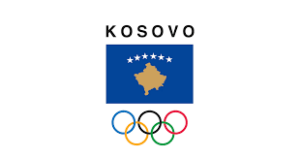The Kosovo Olympic Committee (NOC Kosovo) is pleased to be a partner in the new Erasmus+ Project named “Strengthening Response Mechanism for Safeguarding in European Sports” (SAFE HARBOUR), which is coordinated by the European Olympic Committees EU Office (EOC EU Office). This initiative is dedicated to enhancing safeguarding mechanisms across European sport, creating safer environments for all.
About NOC Kosovo

The NOC Kosovo is the highest sports institution in Kosovo, dedicated to advancing, promoting, and protecting the Olympic Movement while embedding the principles and values of Olympism across the nation. Established in 1992 and officially recognized by the International Olympic Committee (IOC) in 2014, the KOC oversees 53 National Federations, including 30 Olympic and 23 non-Olympic Federations.
As the leading force of the Olympic Movement in Kosovo, NOC Kosovo is committed to promoting Olympic values, empowering athletes, and safeguarding their rights and well-being. NOC Kosovo also plays a central role in promoting high-performance sports, athlete and coach development, and sports education, ensuring a solid foundation for future generations. NOC Kosovo organises initiatives such as Olympic Day celebrations, champions gender equality and diversity through targeted events, and prioritizes the welfare of athletes and coaches through its specialized Commissions. Furthermore, the NOC Kosovo strengthens sporting integrity by combating doping, enforcing safeguarding protocols, and advocating for ethical behavior across all levels of sport.
In addition to its core initiatives, NOC Kosovo places a strong emphasis on environmental sustainability, the development of grassroots sports, and the cultivation of international partnerships. By preparing athletes for top-tier competitions such as the Olympic Games, European Games, and Mediterranean Games, and by successfully securing the hosting rights for the 2030 Mediterranean Games, NOC Kosovo showcases its steadfast dedication to enhancing Kosovo’s reputation and influence in the global sports landscape.
The work of NOC Kosovo on safeguarding in sports to date
NOC Kosovo has made substantial progress in safeguarding athletes and other stakeholders. Central to this effort is the appointment of a Safeguarding Officer, tasked with implementing policies to prevent abuse, harassment, and discrimination. NOC Kosovo organises regular safeguarding and mental health workshops to educate athletes, coaches, and administrators on welfare, ethical behavior, and mental health awareness.
Its Medical Commission supports athletes’ physical and psychological well-being through health check-ups and financial aid, while its Anti-Doping Agency, established in 2021, promotes clean sport through annual training and workshops. Upholding values like fair play, respect, and tolerance, NOC Koosovo integrates safeguarding into broader sports initiatives and aligns its efforts with the IOC’s Ethical Code and Olympic Charter. These activities reflect the NOC Kosovo’s commitment to athlete protection and fostering an inclusive and ethical sports environment in Kosovo.
The role of NOC Kosovo within the SAFE HARBOUR project
Within the SAFE HARBOUR project, NOC Kosovo will play a critical role in tailoring the European Response framework to its national context. Responsibilities include drafting a National Strategy to guide safeguarding actions, delivering mandatory training for the leadership and National Federations, and hosting a National Multiplier Event to raise awareness among stakeholders. Additionally, NOC Kosovo will engage in peer-to-peer roundtables, contribute to thematic seminars, and disseminate the project results through various channels. By actively participating in all project activities, NOC Kosovo will help ensure the successful implementation and sustainability of safeguarding measures.
Background information on the SAFE HARBOUR project
The SAFE HARBOUR project, short for “Strengthening Response Mechanisms for Safeguarding in European Sport”, is a 30-month project co-funded by the European Union through the Erasmus+ Sport Programme 2024. Coordinated by the EOC EU Office, the consortium includes Thomas More and Asser Institute as experts on safeguarding, human rights and law, 2 International Federations (International Biathlon Union and International Ice Hockey Federations), and 20 National Olympic Committees (Belgium, Bosnia and Herzegovina, Croatia, Cyprus, Czechia, Denmark, Germany, Hungary, Kosovo, Latvia, Lithuania, Luxembourg, Malta, Montenegro, Norway, Poland, Portugal, Romania, Slovakia and Slovenia). Additionally, the International Olympic Committee (IOC) is involved as an outside resource.
The project seeks to strengthen the capacity of European NOCs and Federations to address safeguarding concerns by identifying gaps, developing a European Response framework, and fostering collaboration. This framework will be adapted to national contexts, complemented by training and awareness initiatives to enhance safeguarding measures at both national and European levels. Therefore, SAFE HARBOUR aims to equip partner NOCs and Federations with the tools and confidence to implement effective safeguarding measures while establishing a robust support network for Safeguarding Officers and laying the groundwork for a future IOC Regional Safeguarding Hub.
![]()
![]()